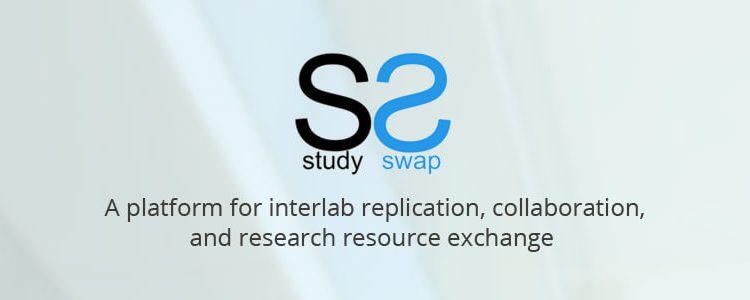StudySwap: Craigslist for Researchers?

It can be quite difficult to organize a prepublication independent replication study to test if the effect that you detected is real. This is just one of the problems that StudySwap was created to solve. Study Swap is an online forum where researchers can post needs and/or resources that they have and would be willing to share. For instance, you may need an interlab replication study done. You could post this as a NEED on the StudySwap platform. If you have resources that someone else may need, such as the ability to assist with a replication study, you can post this as HAVE on the platform. Similarly, StudySwap can be used to help researchers indicate if they have a piece of underused equipment or software which they are willing to make available to others at a given time. StudySwap can also be used by researchers who are unable to find enough participants for their research study. Researchers can describe the characteristics of the population they need to collect data from. If a researcher at another institution has access to the described population, they can work together to arrive at the required population size for the study. The same process can be used if a researcher has access to a population that is difficult to recruit, such as children, romantic couples, or groups of three or more participants at a time. Such a researcher can post a HAVE and if others in the community need to collect data from that population as well, they can connect with the researcher. Also, researchers can advertise if participants will have extra time after taking part in a study. If you need to collect data from this group, you could post a NEED to find a researcher willing to collect data for you after the initial study is completed.
StudySwap was born as a way to make the process of replicating studies easier before they were published. It was launched in March 2017 and currently has over 300 twitter followers, more than 100 downloads of StudySwap posts and instructional materials, four researcher posts have gone live, and one prepublication independent replication study has been initiated. While StudySwap is the brainchild of psychologists, they have been receiving enthusiastic support from other fields including microbiology, genetics, and economics. Over the course of the first year, StudySwap’s creators Randy McCarthy of Northern Illinois University and Christopher Chartier of Ashland University, aim to have 100 collaborations facilitated by this platform. They would also like to publish a metascientific paper summarizing the early use of StudySwap. The paper will describe the nature of 90 approved exchanges between researchers and summarize the outcomes.
Pros and Cons of StudySwap
StudySwap is generally a tool to facilitate collaboration in order to help researchers accomplish more and be more effective. On the issue of replication, the authors of an original study may feel attacked when a replication study based on their work doesn’t confirm their findings. Authors choosing to do the very necessary work of replicating a study can feel that their efforts are not welcome. StudySwap can address this issue. The author of the original study would request the replication, allowing the researcher who agrees to conduct the study to have an ally in the process instead of an adversary. They can both agree on how they will handle authorship, methodology, and open data, among other things. The original author can also ensure that critical details are passed on to the replicators to reduce conflicts.
Since StudySwap is a platform that encourages collaboration and resource sharing and is not limited to prepublication independent replication studies, it will also prove useful for many other kinds of shared efforts which can include study participants, or software or technical equipment, to raise the quality of research work. Matt Hodgkinson who is in charge of research integrity for the open access publisher Hindawi is of the opinion that StudySwap could be incredibly useful for those working in resource-poor settings as long as it manages to attract a critical mass of researchers whose needs match with what is available on the platform. Brian Nosek, executive director of the Center for Open Science thinks that StudySwap has an excellent potential to increase the number of people involved in research while improving the robustness of the research being done.
For StudySwap to work, researchers will need to vet their potential collaborators in order to establish trust. Additionally, researchers need to ensure that suitable ethical clearances are obtained on both sides and an agreement is reached on the collaboration.
More to Come
These are very early days for this pioneering platform. While StudySwap started as a way to make conducting prepublication independent replication studies easier, this Craigslist for researchers has the potential to facilitate so much more. Equipment sharing, increasing the number of participants in a study, and facilitating access to rare study populations are just some of the ways this platform could help scientists to exchange resources. While it is too soon to say if StudySwap will succeed, we can all agree that when scientists collaborate effectively, everybody wins.









